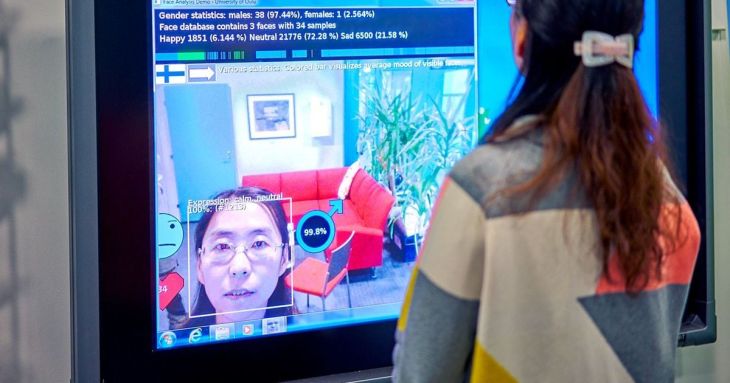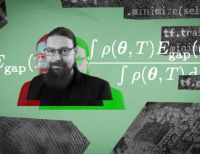The local node of the European Laboratory for Learning and Intelligent Systems (ELLIS) isn’t just for scientists in the Helsinki region. Its newest member, professor Guoying Zhao, hails from the University of Oulu in northern Finland. “AI research in Finland represents the top level in the whole world, with distinctive areas like probabilistic machine learning and computer vision, but it’s not as visible as it should be,” says Zhao. “ELLIS Unit Helsinki is a good platform to gather the best expertise in the country and boost AI from Finland.”
The University of Oulu has a tradition of computer vision research dating back to 1981. Now, the AI community there has expanded to include emotion AI, edge AI, medical AI, educational AI and more. Zhao’s own research is at the intersection of machine learning, computer vision and affective computing. Her current Academy Professor project EmotionAI concerns the analysis of facial expressions, body gestures and remotely measured physiological signs as well as personal data protection. “The purpose is to analyze and serve the most important part, humans, in human-AI interaction and AI-mediated interaction between humans,” says Zhao.
Emotion and facial analysis by algorithm, like other AI applications, has risks of misuse, and Zhao’s team of researchers is working on ways to separate facial identification from signals related to emotion. “To mask people’s identity, we add perturbations to pixels or transfer identity-free emotional information to a general face template,” Zhao explains. “An image for a computer is just a series of zeroes and ones. We are working on new machine learning methods to pick out emotion information and mask identity information.”
Of course, perfect separation of biometrics and emotions is not possible, and there is always a tradeoff: biometric recognition can be largely decreased by sacrificing accuracy in emotion readout. The result is acceptable emotional information for computer analysis while identification from biometrics is significantly degraded. And Zhao stresses, “algorithmic facial analysis should only be used where appropriate, not everywhere. Regulation is an effort all of society should engage in.”
Beyond privacy preservation in emotion research, Zhao also researches trustable data— for example, how to detect data forgery like face deepfakes, and how to use multimodal data as a countermeasure—and autonomous deep learning for designing better architectures for data that come from lots of different devices.
Computer vision continues to be Zhao’s passion. “Visual intelligence is important for every part of life, so why wouldn’t it be important for AI? If machines lose their eyes and don’t receive and understand images, they are not complete.” And because the imaging systems available to machines, from fisheye lenses to infrared sensors and tomographic imaging, go beyond human capabilities, these ‘intelligent eyes’ can complement human expert knowledge—think doctors who can now diagnose with the help of algorithms. “We cannot say we fully understand how humans work, and AI systems are so different to humans,” muses Zhao. “Computers learn something from series of zeroes and ones, but we need to know exactly what they learned.”
While mutual human-AI understanding is still unrealized, research in this area is central to ELLIS Unit Helsinki. Zhao sees the Unit as a venue for exchange of ideas and forming collaborations. The hope is to move to physical gatherings after months of online events, perhaps starting with organizing pre-conference seminars featuring the work of Finnish researchers that has been accepted to premier machine learning and computer vision meetings.







